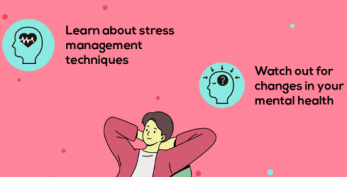

The coronavirus disease 2019 (COVID-19) pandemic has affected persons suffering from substance use disorders (SUDs) all around the world. The purpose of this study was to investigate changes in the number of SUD treatment...
Dear friends and colleagues,
The Commission on Narcotic Drugs is starting very soon! In fact, tomorrow, Monday, 14 March 2022.
Once again, all sessions, as well as the side events, are to be held online due to the pandemic. The good...
To determine whether participation in the United Nations Office on Drugs and Crime (UNODC) and the World Health Organization’s (WHO) Stop Overdose Safely (S-O-S) take-home naloxone training project in Kazakhstan...
While it has been suggested that cocaine use and relapse in women is more strongly related to stress-relief craving, whereas cocaine use in men is more strongly related to reward craving, the neural mechanisms that underlie...
Some evidence suggests that males and females may differ in their responses to acute cannabis effects, including subjective drug effects and behavioural effects, and cannabinoid pharmacokinetics. This is significant given...
Heavy cannabis use (HCU) is frequently associated with a plethora of cognitive, psychopathological and sensorimotor phenomena. Although HCU is frequent, specific patterns of abnormal brain structure and function underlying HCU...
Abstract:
Pains experienced as a result of negative recovery capital are often thought to stimulate motivations for positive behavioural change, usually through a ‘rock bottom’ type moment. Whilst recovery capital and barriers to...
To investigate how alcohol container labels can be used to build public awareness, the Canadian Centre on Substance Use and Addiction commissioned Enhanced Alcohol Container Labels: A Systematic Review and developed a summary of the report...
Importance Some selective serotonin reuptake inhibitors (SSRIs) inhibit the enzymes responsible for the metabolism of oxycodone, a potent prescription opioid. The clinical consequences of this interaction on the risk of opioid...
Cannabis is the most widely used illegal substance in the world, with a global prevalence of 4% among people aged 15 to 64 years and a recent trend of growing use. Cannabis usage can have negative health consequences, such as impaired...
The second webinar in our series on homelessness and substances use was presented by Dr Hannah Carver who focused on the different barriers that people experience when trying to access support and the evidence base for different...
The Institute of Global Homelessness (IGH) drives a global movement to end street homelessness. Their vision is a world where everyone has a home that offers security, safety, autonomy, and opportunity.
This paper, published by IGH...
Summary:
This paper explores the evidence base for services designed to meet the needs of people who experience homelessness and use drugs. Through a delimited analysis of existing systematic and rapid evidence reviews, it considers the...
People who experience homelessness are often described as hard to reach and face marginalisation and exclusion.Peer support, which refers to the support provided by people who have lived experiences of a particular situation, has been...
People who experience homelessness experience disproportionately high rates of drug use and associated harms, yet barriers to services and support are common. This review explores the effects of interventions for this population on...
Despite people who are homeless experiencing higher rates of substance use, individuals face barriers when trying to access and engage with treatment services.
This systematic review and meta-ethnography explores the view of effective...
Traditionally, relapse prevention for addictive disorders has been based on cognitive-behavioural therapy (CBT). The development of mindfulness-based relapse prevention (MBRP) by the University of Washington, which integrates core aspects...
Substance use risks are significantly higher for people who obtain drugs on the unregulated market as there is no quality control and drug contents are unpredictable. This lack of predictability has increased during the COVID-19...
People who are homeless experience significant physical, mental and social challenges that are linked with poor health and functioning. Rates of substance use issues, mental health difficulties, injury and chronic disease are significantly...
This miniguide is one of a larger set, which together comprises Health and social responses to drug problems: a European guide 2021.
It provides an overview of the most important aspects to consider when planning or delivering health and...
Share the Knowledge: ISSUP members can post in the Knowledge Share – Sign in or become a member